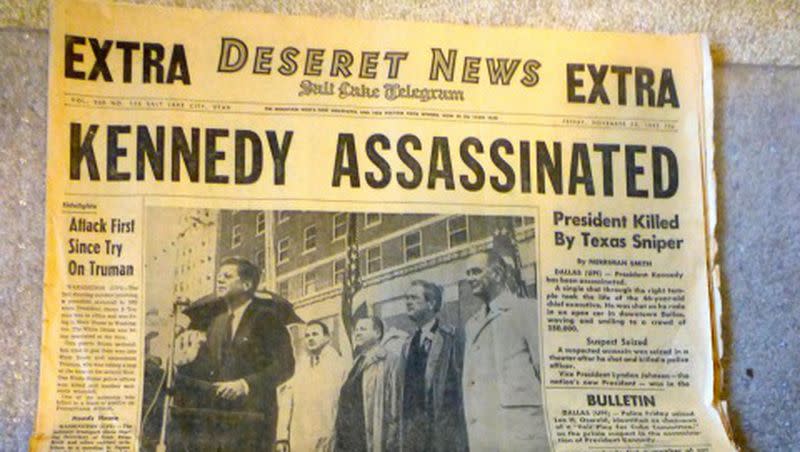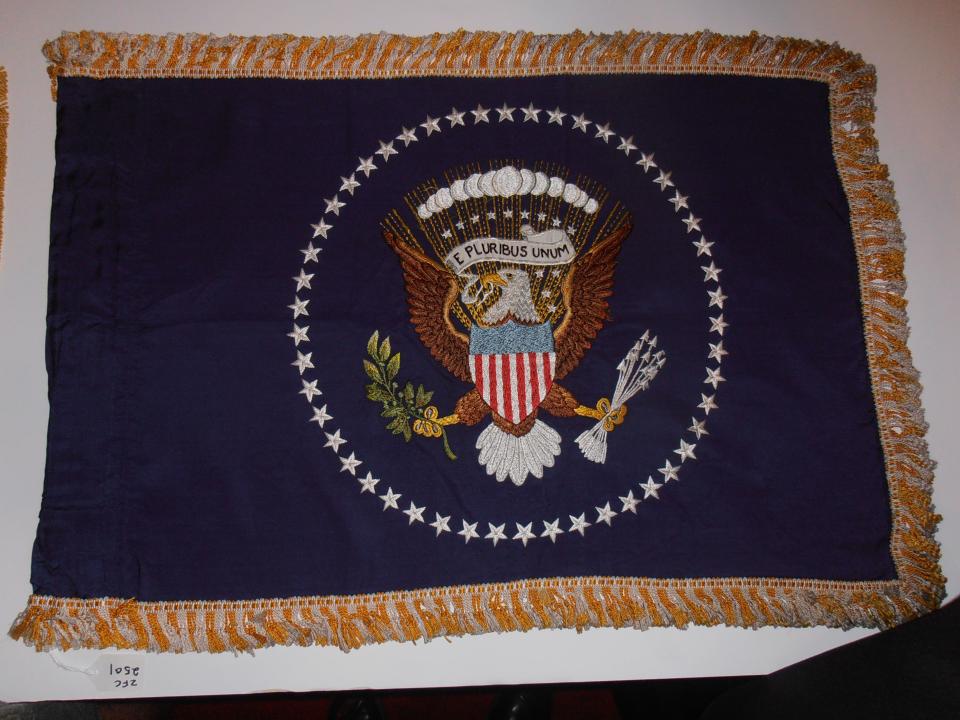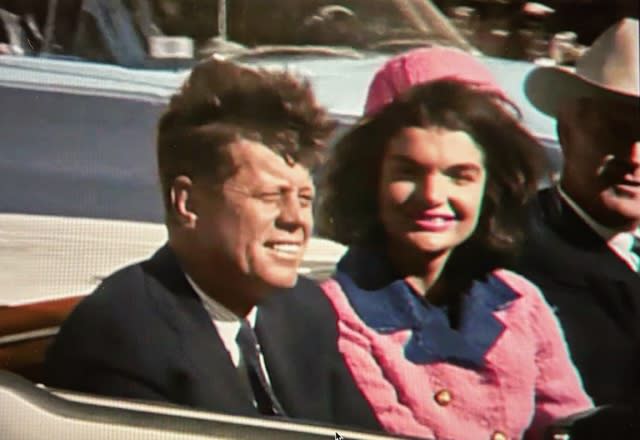‘The president is dead’: What it was like to live through JFK’s assassination

- Oops!Something went wrong.Please try again later.
Today, we of a certain age remember the assassination of President John F. Kennedy. As an 11-year-old, it was as big an event in my life to that date.
This event, like the space shuttle explosion or Sept. 11, is etched into our minds; we know exactly where we were and will never forget it. These events have changed how we live and how we see the world. If you were 11 on Sept. 11, 2001, you would be 33 today.
Linda, my wife, who is three years younger than I am, came home from school to find her mother crying for someone other than a relative, and could not understand what happened or why she was so upset.
My memories of that fateful day started like any other 11-year-old attending sixth grade. Woke up when I would rather stay in bed, and ate my Cheerios, Wheaties or Hot Mapo cereal as Mom packed my lunch pail. Then, out the door, almost forgetting my homework for the one-block walk to James Kew Elementary School in Inglewood, California.

Once at school, it was the Pledge of Allegiance, attendance and announcements, then to math or science or English. At 11 a.m., a TV was pushed to the center of the classroom for us to watch a Spanish lesson, which was broadcast by a local TV station.
Just a few minutes into the lesson, the program stopped and on the screen was the word “BULLETIN.” I can remember the announcer saying, “Dateline, Dallas, Texas, Shots have been fired at the president’s motorcade, standby for further details.” Most of us did not understand at first, but our teacher did. We listened as she explained what was happening, and then once we understood, we just listened to the reports as a newscaster told the story as it unfolded.
Related
At about 11:50 a.m., the teacher from the next room came in and took the TV because it was housed in his classroom, not ours. My teacher turned to me and asked me and another student to go to the office and retrieve a radio. It was just about lunchtime, but no one was thinking about lunch. On entering the office, I remember the secretaries all crying; they gave me the old large glass tube radio and sent me back to class. Our teacher plugged in the radio and found one of the news channels, KNXT or KFWB, and we got the tail end of a few words and then there was a long pause. Then the words came over the radio: “The president is dead”!

There was shock and then tears; some just cried because others did. Then came fear, as we did not know the full impact of what this meant. The only thing like this that I could remember was during the Cuban missile crisis, when I went with Mom to our grocery store and saw people buying everything off the shelves, with many shelves empty.
It was almost Thanksgiving and many special events were planned. All Friday night football games were canceled, any Christmas parades, movies and any other type of event was stopped in honor of the president. On TV, there was only newscasts on the assassination or the legacy of Kennedy and his administration. For over four days, people would speak of nothing else.
I was a newspaper boy back then for the Los Angeles Herald Examiner. I had my normal paper route and the paper gave us a lot more papers that Sunday to sell. I was putting a paper on the front door of one home when the homeowner said, “Kid, did you hear, Lee Harvey Oswald was just shot.” He invited me in, and I watched for a few minutes and then back out to the street. Pulling my wagon of papers, I started yelling at the top of my lungs, “EXTRA, Lee Harvey Oswald, shot.” People came out of their homes and started to ask what I was saying, and I told them, and sold the paper, then they went back into their homes to turn on the TV.
The longest day was the day of the president’s funeral, seeing all of the men marching, the horse with no rider, the muffled drums and the two kids with their mom. It was really sad. And then the family and world leaders all walked to Arlington, the final resting place for the 35th president.
Since 1972, I have had the great opportunity to work for five U.S. presidents traveling in the U.S. and around the world. Thankfully, I have never had one hurt during my time working, though I did work both days with Gerald Ford the day before he was shot at.
Lastly, this Kennedy event has in some ways overshadowed another great point in history, the 150th anniversary of the delivery of the Gettysburg Address, by another fallen president, Abraham Lincoln. His few words summed up the feelings of a nation and helped mark his place in history as one of our nation’s greatest presidents.
Ronald L. Fox is an author, historian and co-chair of the Utah Commission on the 250th anniversary of the United States.

